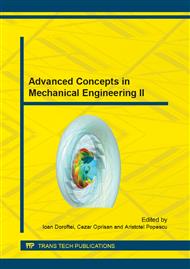p.571
p.577
p.585
p.589
p.595
p.601
p.607
p.611
p.617
Success Elements Analysis of International Engineering and Educational Projects
Abstract:
The objective of the paper is to present and compare the results of several international projects and to identify pedagogical and project success elements. The generic projects are few examples that had in common the several objectives: to identify the training needs; to develop an evaluation tool to transform actual and current training offered by corporate /occupational further training institutes ; to improve quality of education to meet the needs of working life. In projects, the training needs were identified involving universities, educational institutions, training and consulting companies from countries across Europe.The selection of the study cases is not random. The intent is to emphasis the consequences-by using similar approach-into distinct project methodologies: one is promoted largely by sponsors from US; the other three are according to the EU rules, regulations, and procedures.
Info:
Periodical:
Pages:
611-616
DOI:
Citation:
Online since:
October 2014
Authors:
Keywords:
Price:
Сopyright:
© 2014 Trans Tech Publications Ltd. All Rights Reserved
Share:
Citation:


